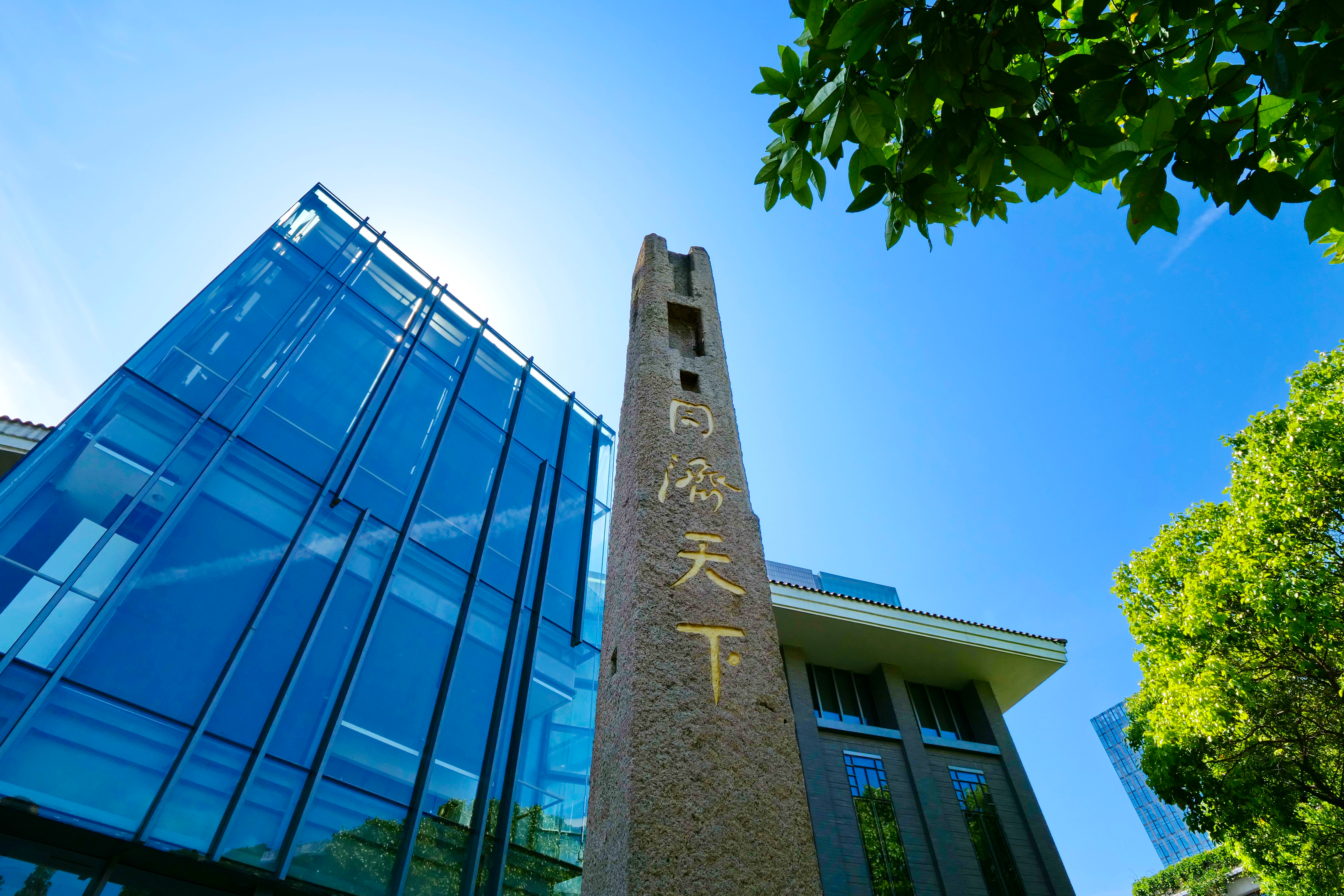Talent Exchanges Elevate Innovation at Tongji University

A campus landmark, which best manifests the university's educational concept, stands at the Sipinglu campus of Tongji University. (PHOTO: Tongji University)
By HUANG Aijiao& CHEN Chunyou
In recent years, a group of renowned foreign scientists from Tongji University (Tongji) in Shanghai have made outstanding achievements in their research fields, while also contributing to the scientific and technological cooperation between China and the world.
Based on international academic frontiers and major strategic needs, foreign scientists, represented by Professors Otto Heinrich Herzog, Pol D. Spanos and Herbert Mang, cooperated with Chinese scientists at Tongji to carry out joint research in key fields and core technologies, build high-level cooperative research platforms, and cultivate young talent. These have injected vitality into practical international cooperation and exchanges.
"Brother Cooperation" in AI research
Professor Herzog is an artificial intelligence (AI) expert from Germany and was invited to work at Tongji for nearly seven years. He has engaged in the interdisciplinary innovation in AI and urban planning, and helped China to build a global hub for the scientific development and innovative application of AI. He is affectionately called "Brother Cooperation" by his colleagues.
Herzog won the 2021 Shanghai Magnolia Memorial Award and was elected as a foreign academician of the Chinese Academy of Engineering (CAE) in November 2021.
Before arriving in Shanghai, Herzog had never tried to combine AI with urban planning and operation. In the past seven years, he and his Chinese counterpart, were joint leaders of the research and development of the Yangtze River Delta urban and rural dynamic monitoring database, and the world's largest city database, while providing technical support and suggestions for the Urban Elements Allocation Model and the Urban Intelligent Deduction and Diagnosis Platform.
Herzog has decided to settle in Shanghai and work at Tongji for the foreseeable future.
Tongji—my home in China
In November 2019, American Professor Spanos was elected a foreign academician of the Chinese Academy of Sciences, after receiving the International Scientific and Technological Cooperation Award of China in 2017.
Over the past 10 years, a series of important advances in stochastic dynamics research and stochastic dynamic stability have been made by him and his Chinese colleagues.
"Tongji University is my home in China," said Spanos. In 2016, he co-founded the International Joint Research Center for Engineering Reliability and Stochastic Mechanics (JCERSM) of Tongji with academician Li Jie, and served as the foreign director. They have jointly held many important international academic conferences, trained doctoral students and published papers, committed to making JCERSM become internationally influential in this field.
Forty years' nurturing young talent
In January 2020, Austrian Professor Mang was awarded the 2019 International Science and Technology Cooperation Award of China after being elected a foreign academician of CAE in 2015, becoming the first Austrian scientist to receive this honor.
Mang started academic cooperation with China in the 1980s. Under his promotion, the Austria-China Research Center on Tunnel and Underground Engineering (ACTUE) was established in Tongji in 2007.
Thanks to this research platform, scientists from Tongji and Vienna University of Technology have maintained frequent academic exchanges and profound cooperation.
As a permanent cooperative project, the ACTUE International Symposium is held in China and Austria alternately every year. Many scholars and students from the two countries attend the symposium and exchange their ideas.
"One of the most important achievements of my 40-year partnership with China in civil engineering is the training of promising young people in academia and industry for both countries," said Mang.
Under Mang's guidance, many students have grown into academic leaders, and worked in internationally renowned academic organizations.
Adhering to the principles of "building a platform to attract talent, introducing projects to develop talent, offering good conditions to retain talent," Tongji is building a team of high-level dedicated foreign staff. In future, the university will further integrate global talent attraction with scientific and technological cooperation, so as to promote the high-quality scientific and technological innovation, advance the building of world-class universities and first-class disciplines, and help achieve national self-reliance in sci-tech at higher levels.






